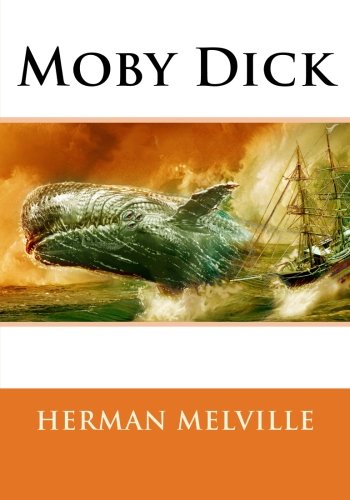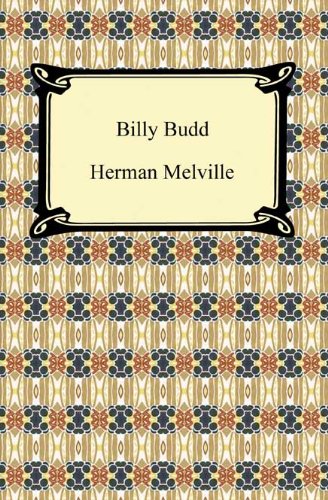-
Typee: A Peep at Polynesian Life
Herman Melville
eBook (Digireads.com, April 1, 2004)"Typee: A Peep at Polynesian Life" was Herman Melville's first novel. Originally published in 1846, "Typee" was partially based on Melville's own experiences as a beachcomber in the South Pacific Marquesas Islands. A romanticized travelogue of the Pacific island paradise Nuku Hiva, "Typee" is the story of Tommo, a Yankee sailor and his four month stay on the island. One of Melville's most popular works during his lifetime, "Typee" gives the reader a captivating look into the cultures and traditions of the natives living in the islands of the South Pacific.
-
Typee: A Peep at Polynesian Life
Herman Melville
eBook (Digireads.com, April 1, 2004)"Typee: A Peep at Polynesian Life" was Herman Melville's first novel. Originally published in 1846, "Typee" was partially based on Melville's own experiences as a beachcomber in the South Pacific Marquesas Islands. A romanticized travelogue of the Pacific island paradise Nuku Hiva, "Typee" is the story of Tommo, a Yankee sailor and his four month stay on the island. One of Melville's most popular works during his lifetime, "Typee" gives the reader a captivating look into the cultures and traditions of the natives living in the islands of the South Pacific.
-
Typee: A Peep at Polynesian Life
Herman Melville
eBook (Digireads.com, April 1, 2004)"Typee: A Peep at Polynesian Life" was Herman Melville's first novel. Originally published in 1846, "Typee" was partially based on Melville's own experiences as a beachcomber in the South Pacific Marquesas Islands. A romanticized travelogue of the Pacific island paradise Nuku Hiva, "Typee" is the story of Tommo, a Yankee sailor and his four month stay on the island. One of Melville's most popular works during his lifetime, "Typee" gives the reader a captivating look into the cultures and traditions of the natives living in the islands of the South Pacific.
-
Typee: A Peep at Polynesian Life
Herman Melville
eBook (Digireads.com, April 1, 2004)"Typee: A Peep at Polynesian Life" was Herman Melville's first novel. Originally published in 1846, "Typee" was partially based on Melville's own experiences as a beachcomber in the South Pacific Marquesas Islands. A romanticized travelogue of the Pacific island paradise Nuku Hiva, "Typee" is the story of Tommo, a Yankee sailor and his four month stay on the island. One of Melville's most popular works during his lifetime, "Typee" gives the reader a captivating look into the cultures and traditions of the natives living in the islands of the South Pacific.
-
Typee: A Peep at Polynesian Life
Herman Melville
eBook (Digireads.com, April 1, 2004)"Typee: A Peep at Polynesian Life" was Herman Melville's first novel. Originally published in 1846, "Typee" was partially based on Melville's own experiences as a beachcomber in the South Pacific Marquesas Islands. A romanticized travelogue of the Pacific island paradise Nuku Hiva, "Typee" is the story of Tommo, a Yankee sailor and his four month stay on the island. One of Melville's most popular works during his lifetime, "Typee" gives the reader a captivating look into the cultures and traditions of the natives living in the islands of the South Pacific.
-
Typee: A Peep at Polynesian Life
Herman Melville
eBook (Digireads.com, April 1, 2004)"Typee: A Peep at Polynesian Life" was Herman Melville's first novel. Originally published in 1846, "Typee" was partially based on Melville's own experiences as a beachcomber in the South Pacific Marquesas Islands. A romanticized travelogue of the Pacific island paradise Nuku Hiva, "Typee" is the story of Tommo, a Yankee sailor and his four month stay on the island. One of Melville's most popular works during his lifetime, "Typee" gives the reader a captivating look into the cultures and traditions of the natives living in the islands of the South Pacific.
-
Typee: A Peep at Polynesian Life
Herman Melville
eBook (Digireads.com, April 1, 2004)"Typee: A Peep at Polynesian Life" was Herman Melville's first novel. Originally published in 1846, "Typee" was partially based on Melville's own experiences as a beachcomber in the South Pacific Marquesas Islands. A romanticized travelogue of the Pacific island paradise Nuku Hiva, "Typee" is the story of Tommo, a Yankee sailor and his four month stay on the island. One of Melville's most popular works during his lifetime, "Typee" gives the reader a captivating look into the cultures and traditions of the natives living in the islands of the South Pacific.
-
Moby Dick
Herman Melville
Paperback (CreateSpace Independent Publishing Platform, June 22, 2015)Moby-Dick; or, The Whale (1851) is a novel by Herman Melville considered an outstanding work of Romanticism and the American Renaissance. Ishmael narrates the monomaniacal quest of Ahab, captain of the whaler Pequod, for revenge on Moby Dick, a white whale which on a previous voyage destroyed Ahab's ship and severed his leg at the knee. Although the novel was a commercial failure and out of print at the time of the author's death in 1891, its reputation as a Great American Novel grew during the twentieth century. William Faulkner confessed he wished he had written it himself, and D. H. Lawrence called it "one of the strangest and most wonderful books in the world", and "the greatest book of the sea ever written". "Call me Ishmael" is one of world literature's most famous opening sentences.The product of a year and a half of writing, the book is dedicated to Nathaniel Hawthorne, "in token of my admiration for his genius", and draws on Melville's experience at sea, on his reading in whaling literature, and on literary inspirations such as Shakespeare and the Bible. The detailed and realistic descriptions of whale hunting and of extracting whale oil, as well as life aboard ship among a culturally diverse crew, are mixed with exploration of class and social status, good and evil, and the existence of God. In addition to narrative prose, Melville uses styles and literary devices ranging from songs, poetry and catalogs to Shakespearean stage directions, soliloquies and asides.The work was first published as The Whale in London in October 1851 and then under its definitive title Moby-Dick in New York in November. There were hundreds of slight but important differences between the two editions. The London publisher censored or changed sensitive passages and Melville made revisions as well, including the last-minute change in the title for the New York edition. The whale, however, appears in both editions as "Moby Dick", with no hyphen. About 3,200 copies were sold during the author's life, earning him a little more than $1,200.
-
Billy Budd
Herman Melville
eBook (Digireads.com, July 1, 2004)This is the final work of American author Herman Melville (1819-1891), discovered amongst his papers three decades after his death and published in Raymond Weaver's 1924 edition of "The Collected Works of Melville." The emergence of what some consider to be Melville's masterpiece sparked a revived interest in the forgotten writer, despite the complex and incomplete nature of the manuscript. This is the first of many attempts to piece together and refine the sometimes illegible text, which included questionable additions and omissions made by Melville's wife after his death. The story stemmed from Melville's interest in an 1888 article called "The Mutiny on the Somers," concerning three sailors who in 1842 had been convicted of mutiny. Billy Budd is a navy sailor accused of mutiny by a fellow officer, and immediately strikes his accuser dead, followed quickly by a trial, conviction and execution. The novel presents several different versions of the events, organized by Weaver into twenty-six chapters including the omitted "Daniel Orme" chapter.
-
Moby-Dick
Herman Melville
eBook (Dover Publications, March 12, 2012)A masterpiece of storytelling, this epic saga pits Ahab, a brooding and fantastical sea captain, against the great white whale that crippled him. In telling the tale of Ahab's passion for revenge and the fateful voyage that ensued, Melville produced far more than the narrative of a hair-raising journey; Moby-Dick is a tale for the ages that sounds the deepest depths of the human soul. Interspersed with graphic sketches of life aboard a whaling vessel, and a wealth of information on whales and 19th-century whaling, Melville's greatest work presents an imaginative and thrilling picture of life at sea, as well as a portrait of heroic determination. The author's keen powers of observation and firsthand knowledge of shipboard life (he served aboard a whaler himself) were key ingredients in crafting a maritime story that dramatically examines the conflict between man and nature. "A valuable addition to the literature of the day," said American journalist Horace Greeley on the publication of Moby-Dick in 1851 — a classic piece of understatement about a literary classic now considered by many as "the great American novel." Read and pondered by generations, the novel remains an unsurpassed account of the ultimate human struggle against the indifference of nature and the awful power of fate. Much of Moby Dick was inspired by the 1821 work Narratives of the Wreck of the Whale-Ship Essex, which in turn inspired the 2015 movie In the Heart of the Sea, directed by Ron Howard and starring Chris Hemsworth.
-
MOBY-DICK;or,THE WHALE
Herman Melville
eBook (, Jan. 28, 2020)Moby-Dick; or, The Whale is an 1851 novel by American writer Herman Melville. The book is sailor Ishmael's narrative of the obsessive quest of Ahab, captain of the whaling ship Pequod, for revenge on Moby Dick, the giant white sperm whale that on the ship's previous voyage bit off Ahab's leg at the knee.A contribution to the literature of the American Renaissance, the work's genre classifications range from late Romantic to early Symbolist.Moby-Dick was published to mixed reviews, was a commercial failure, and was out of print at the time of the author's death in 1891.Its reputation as a "Great American Novel" was established only in the 20th century, after the centennial of its author's birth.William Faulkner confessed he wished he had written the book himself, and D. H. Lawrence called it "one of the strangest and most wonderful books in the world" and "the greatest book of the sea ever written".Its opening sentence, "Call me Ishmael", is among world literature's most famous
-
MOBY-DICK;or, THE WHALE.
Herman Melville
eBook (, March 3, 2019)Call me Ishmael. Some years ago—never mind how long precisely—having little or no money in my purse, and nothing particular to interest me on shore, I thought I would sail about a little and see the watery part of the world. It is a way I have of driving off the spleen and regulating the circulation. Whenever I find myself growing grim about the mouth; whenever it is a damp, drizzly November in my soul; whenever I find myself involuntarily pausing before coffin warehouses, and bringing up the rear of every funeral I meet; and especially whenever my hypos get such an upper hand of me, that it requires a strong moral principle to prevent me from deliberately stepping into the street, and methodically knocking people’s hats off—then, I account it high time to get to sea as soon as I can. This is my substitute for pistol and ball. With a philosophical flourish Cato throws himself upon his sword; I quietly take to the ship. There is nothing surprising in this. If they but knew it, almost all men in their degree, some time or other, cherish very nearly the same feelings towards the ocean with me.